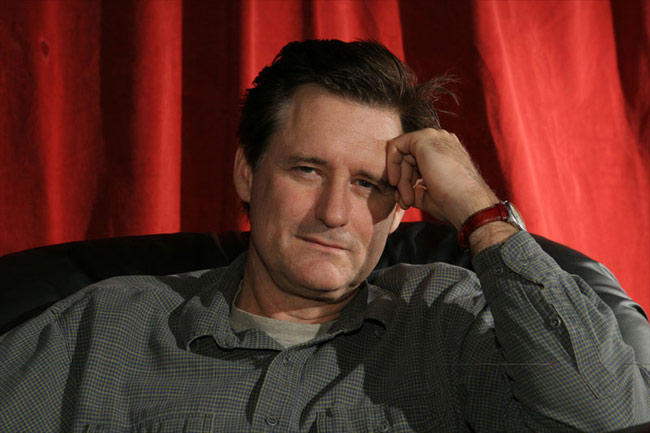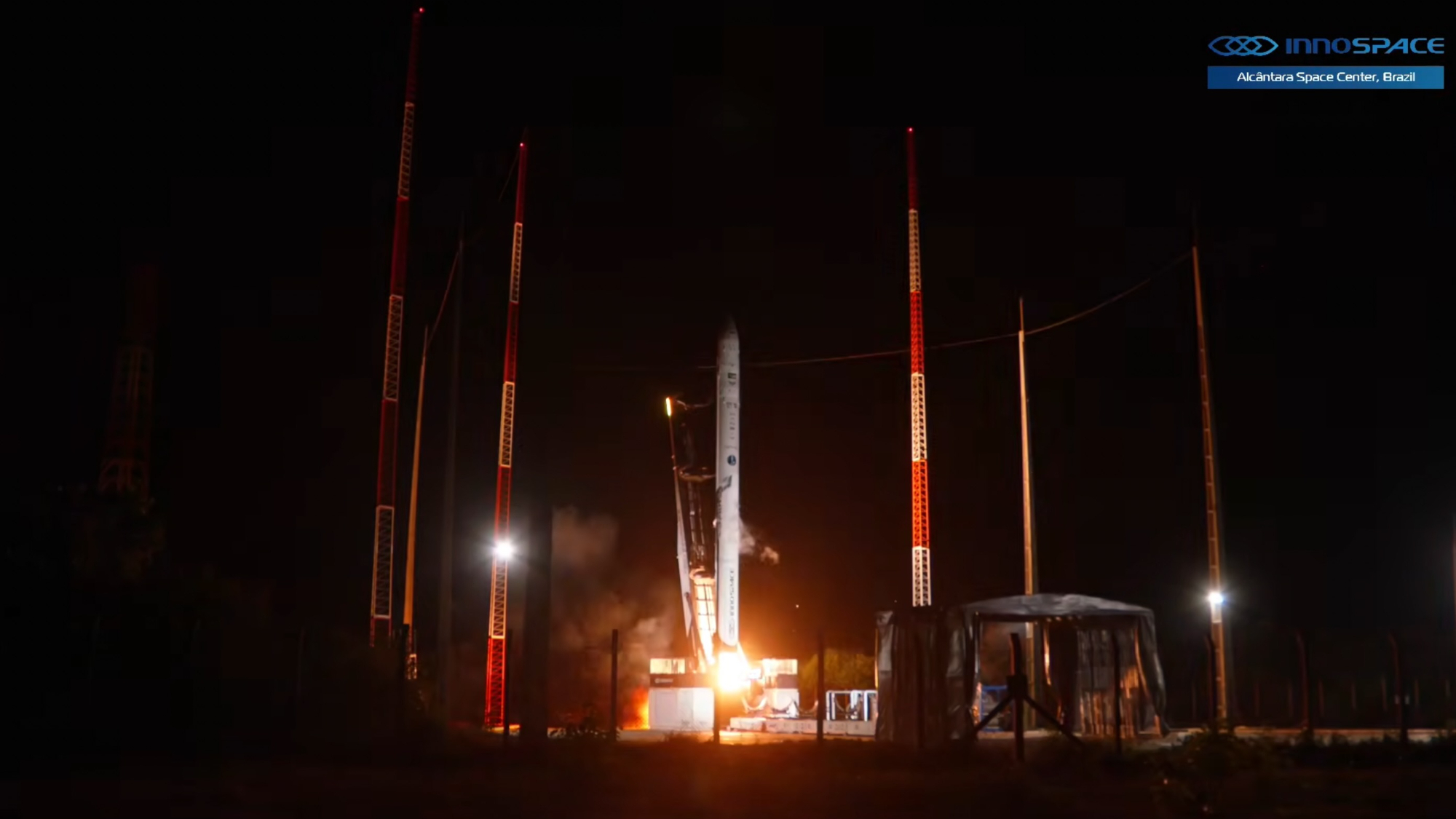Actor Bill Pullman Stages Theatrical Space Odyssey

Ask theaverage person what the connection is between Bill Pullman and spaceexploration and you're likely to hear references to the sci-fi movies he hasstarred in, such as "Spaceballs" or "Independence Day." Butthe actor and director has much more invested now in the recent history ofspace flight as his own creation, the theatrical production "Expedition6," has opened for a month engagement at the Magic Theatre in SanFrancisco, Calif.
Pullman recently sat down withcollectSPACE.com to discuss his play, the lessons it is meant to convey to itsaudience and the appreciation he has come to inherit through it.
collectSPACE (cS): What is "Expedition6"?
BillPullman (BP): It'san odyssey story, that follows the journey of the three guys, two astronautsand [a] cosmonaut, who were on Expedition Six that were launched in November 2002and were up there when the Columbia was in low Earth orbit and then lost on itsreturn, and the consequences that affected their mission and challenged them toget home.
cS: How did you first learn of Columbia's loss?
BP: It was a Saturday morning, and Ithink I was in the car driving. I had to go run to get milk and I heard theradio report. I remember pulling off to the side of the road and listening toit.
It wasstunning to me. I was aware that I hadn't kept up on it. I wasn't somebody whowas aware that they had even gone up. Suddenly I became hugely interested,reading everything I could the next few days. Then to realize by Monday, I saw,because it was at the same time as the build-up to the Iraq war, that the newswas pushed back to the back pages, in the LA Times anyway, and that's when Isaw the sidebars about Expedition Six being on the space station and now thatthe shuttle was grounded, looking to figure out what was the best way to getthem home and what will happen to the space station.
Breaking space news, the latest updates on rocket launches, skywatching events and more!
cS: How did you get the idea totranslate the experiences of the Expedition Six crew into a theatricalproduction?
BP: I had clipped a lot of articlesabout it that were in the paper. Then I had gone up and talked to a friend whowas interested in doing something up in Denver and I went up there to meet withthese eight actors that were trained in low flying trapeze. The thought of whatthat story would look like in this type of very minimalist theater world, withtrapeze and other things, interested me.
cS: Other than the clippings, whatother sources did you use for reference?
BP: I used a lot of Space.com,NASA.gov for the text of the piece – interviews and things like that – thathappened both when they were up there as it was waiting to be determined whatthe mission would be and from that point on, and then when they returned toEarth.
cS: How important was it to you tocapture the history of Expedition Six factually?
BP: I didn't really set it up to be ahistoric document.
I wasinterested in using first person accounts and data that I gathered, but I tooka lot of what I call "fudging" license, in order to fill out a storythat I think needs to be a larger story than just reporting about that oneincident, into being a story about travelers in space.
So I used alot of other first person accounts from astronauts who were very articulateabout all the different types of components of their experience and selectedthe ones that intrigued me most, and used that as the central narrative, butthe backbone was [Expedition Six Science Officer] Don Pettit's spacechronicles.
cS: Speaking of Pettit, we heard thatyou recently had a chance to finally meet him and his ISS commander KenBowersox. How did that go?
BP: I was nervous! (laughs) Oh my god,I think that's why I put it off for so many years.
I had donealmost all the research in 2003 and I sent it to them, the script, beforetalking to them not knowing what they would think. They both came backembracing of it, and also very generously offered to help tweak the things thatI had kind of slugged in there that I was looking to make more accurate. I hadjust kind of rough stuff about certain terminology that I had kind of dancedaround.
And thenwhen I got with Don and Ken, and we went through the script together, it wasgreat. They understood the whole thing of what I was doing. You know, therewere certain things I have their wives saying that were said by otherastronauts' wives, but the core of things, they could recognize their own wordsin their interviews, and what their wives had said at other times, so theyunderstood I was making a theater piece. There's a black guy playing DonPettit, so it's really not a historical thing at its essence. (laughs)
But it ishistorical in what I get out of knowing those two guys. Meeting them made mewant to bring it in line with what I was feeling about them, which was twoadmirable characters, incredibly interesting [and] very different.
I also hadto recognize that what theater wants is conflict, and what those three wereable to achieve was in fact one of the most harmonious residencies of the spacestation that has been up there. Yet that wasn't good for my story! (laughs) So,I had to take some tensions that I could tell happened and extrapolate uponthem.
- VIDEO: Orbital Acrobatics Aboard Space Station
- As it Happened: ISS Expedition 6
- Complete Space Station Expedition Coverage
Copyright 2007 collectSPACE.com. All rights reserved.

Robert Pearlman is a space historian, journalist and the founder and editor of collectSPACE.com, a daily news publication and community devoted to space history with a particular focus on how and where space exploration intersects with pop culture. Pearlman is also a contributing writer for Space.com and co-author of "Space Stations: The Art, Science, and Reality of Working in Space” published by Smithsonian Books in 2018.
In 2009, he was inducted into the U.S. Space Camp Hall of Fame in Huntsville, Alabama. In 2021, he was honored by the American Astronautical Society with the Ordway Award for Sustained Excellence in Spaceflight History. In 2023, the National Space Club Florida Committee recognized Pearlman with the Kolcum News and Communications Award for excellence in telling the space story along the Space Coast and throughout the world.

